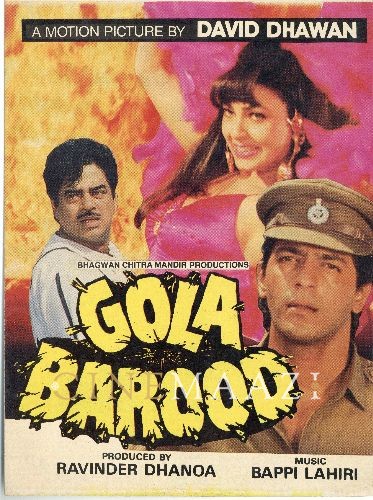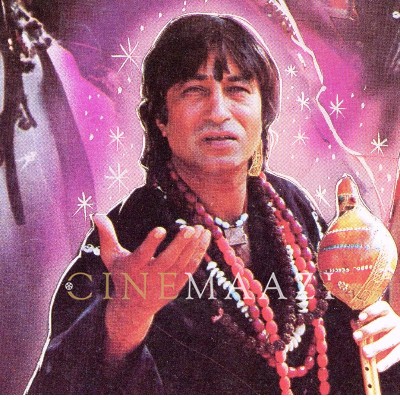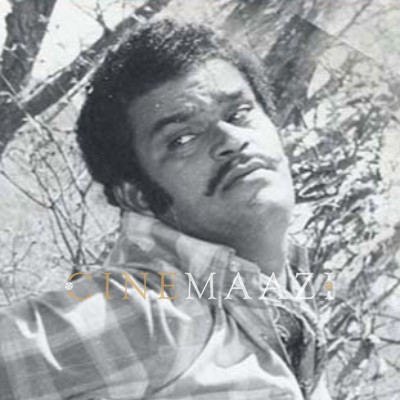Pankaj Udhas

Subscribe to read full article
This section is for paid subscribers only. Our subscription is only $37/- for one full year.
You get unlimited access to all paid section and features on the website with this subscription.
Not ready for a full subscription?
You can access this article for $2 , and have it saved to your account for one year.
- Born: 17 May, 1951 (Jetpur, Gujarat)
- Died: 26 February, 2024 (Mumbai)
- Primary Cinema: Hindi
- Parents: Jituben Udhas, Keshubhai Udhas
- Spouse: Farida Udhas
- Children: Nayaab Udhas and Reva Udhas
Synonymous with the heartstring-tugging song Chitthi aayee hai from the film Naam (1986) most popular with NRIs across the world, ghazal and playback singer Pankaj Udhas has carved a career marked by several high notes, including being honoured with the Padma Shri for his contribution to ghazal singing. He made his debut in films rendering playback for the 1972 film Kamna, but it was with the Mahesh Bhatt directorial Naam featuring his resounding success, the aforementioned Chitthi aayee hai, that Udhas became a highly popular name. Udhas went on to render playback for many Hindi films such as Dayavan (1988), Hum Intezaar Karenge (1989), Sangeet (1992), Beta (1992), Ghayal (1990), Baazigar (1993), Mohra (1994), Jai Vikraanta (1995), Yeh Dillagi (1994), Main Khiladi Tu Anadi (1994), Chot (2004), Dreams (2005), Kaagaz Ki Kashti (2015), Hum Baja Bajaa Denge (2015), and Dil Toh Deewana Hai (2016). Releasing his first ghazal album Aahat in 1980, he recorded many hit albums such as Mukarar, Tarrannum, Mehfil, Pankaj Udhas Live at Royal Albert Hall, Nayaab and Aafreen. Besides his ghazal albums he is also a huge draw at live concerts across the globe.
Born in Jetpur, Gujarat on 17 May, 1951, to Jituben Udhas and Keshubhai Udhas, Pankaj is the youngest of three brothers. Hailing from a family of traditional landlords, his first exposure to music came via his father, who would play the dilruba as a hobby. His older brothers Manhar Udhas and Nirmal Udhas were already into singing at various social functions in Rajkot. Pankaj was also a big fan of Begum Akhtar, which sparked his love for ghazals. Completing his schooling at Sir BPTI Bhavanagar, Pankaj joined St. Xavier's College when his family moved to Bombay. His first stage performance came during the Sino-Indian war in 1962 when he rendered the patriotic Aye mere watan ke logo on stage. Pursuing the learning of the tabla at the Sangeet Natya Academy in Rajkot, he went on to start training in Indian classical vocal music from Ghulam Qadir Khan Sahab in Rajkot, followed by Master Navrang Nagpurkar, the famous singer from the Gwalior Gharana, in Bombay.
Pankaj Udhas made his debut as a playback singer with the film Kamna (1972). He had the opportunity to render a song that was composed by Usha Khanna and written by Naqsh Lyallpur. The song became very popular and was appreciated by listeners. This being the era of greats like Kishore Kumar and Mohammad Rafi, he did not find it easy to make headway in the industry. Struggling from 1971 onwards, by 1972-73, he realised that he was up against huge competition. He had already been singing ghazals by then, and learned Urdu to pursue a career as a ghazal singer. He also spent 10 months in Canada and the US doing ghazal concerts, and so decided to shift his focus entirely to ghazals. His first album, Aahat, was released at the beginning of 1980; subsequently, there were other albums, such as Mukarrar and Nayaab. As his style of singing matured, his popularity really began to rise, bringing him attention and appreciation. As of 2011 he had released more than 50 albums and hundreds of compilation albums.
Udhas’ fame as a playback singer grew when was assigned the song Chitthi aayee hai. The makers were looking for a singer who was popular across India and his name was suggested. Udhas not only rendered the song but was also picturised in it. It was an instant success, and his equation with the entire industry changed. Post Naam, his playback career began in earnest, and he went on to render songs for numerous films. While he remained extremely selective about his choice of songs, the ones he rendered went on to become very popular. These include the duet Mahiya teri kasam with Lata Mangeshkar for Ghayal (1990), and Na kajre ki dhar from Mohra (1994) along with Sadhana Sargam. Interestingly, besides Naam, Udhas has also made on-screen appearances in films such as Saajan, Yeh Dillagi, and Phir Teri Kahaani Yaad Aayee.
His role models in the industry include Lata Mangeshkar, actor Dev Anand for working non-stop throughout his life and his belief in never retiring. Among the masters of ghazal, Udhas has been a huge fan of Mehdi Hasan, as well as Jagjit Singh who brought his own revolution to the ghazal form, inventing a contemporary approach and including variety in the ghazal repertoire.
Udhas’ many ghazal albums include Nasha (1997), Mukarrar (1981), Tarrannum (1982), Mehfil (1983), Shamakhana, Pankaj Udhas Live at Albert Hall (1984), Nayaab (1985), Legend, Khazana, Aafreen (1986), Shagufta, Nabeel, Aashiana, Rubayee, Teen Mausam, Geetnuma, Kaif, Khayaal, Aman, Woh Ladki Yaad Aati Hai, Stolen Moments, Mahek (1999), Ghoonghat, Muskan, Dhadkan, Best of Pankaj Udhas Vol-1,2, Pankaj Udas 'Life Story' Vol-1,2, Pankaj Udhas Vol-1,2,3,4, Lamha, Janeman, Jashn (2006), Endless Love, Shaayar, Rajuat (Gujarati), Baisakhi (Punjabi), Yaad, Kabhi Ansoo Kabhi Khushboo Kabhi Naghuma, Humnasheen, In Search of Meer (2003), Hasrat, Bhalobasha (Bengali), Yaara – Music by Ustad Amjad Ali Khan, Shabad – Music by Vaibhav Saxena and Gunjan Jha, Shaayar (2010), Barbad Mohabbat, Nasheela, Sentimental (2013), Khamoshi Ki Aawaz (2014), Khabon Ki Khahani, Madhose, and Nayaab Lamhe with Gulzar(2018). He also believes that the film industry played a major role in popularising the ghazal.
Incidentally, his album Shagufta launched by Music India in 1987 was the first to be released on compact disc in India. Among his other achievements, Udhas started a talent hunt television programme called Aadab Aarz Hai on Sony Entertainment Television.
Among the many awards he has received, besides the Padma Shri in 2006, are the Kalakar award for Hasrat, a Special Felicitation at the Wembley Conference Centre London for Completing 20 Years of Performance at the Prestigious Venue, the MTV Immies Award for the successful album 'In Search of Meer', Special Achievement Award at the Bollywood Music Award New York for Popularizing Ghazals Across the Globe, Dadabhai Naoroji Millennium Award for Contribution to Ghazal and the Music Industry, Award for Excellence in Music Field presented by Sahyog Foundation, Bharatiya Vidya Bhavan, USA Award for extraordinary services to Indian music, Indian Arts Awards Gala presented by the Mayor of the City of Jersey City, Outstanding Artistic Achievement Award presented by the American Academy of Artists at Atlantic City, Indira Gandhi Priyadarshani Award for Outstanding Services, Achievement and Contribution to Music, and Radio Lotus Award for Outstanding Achievement presented by Radio Lotus, South Africa at the University of Durban. He was also bestowed Honorary Citizenship of Lubbock Texas, USA.
On the personal front, Pankaj Udhas is married to Farida Udhas. The couple has two children, Nayaab Udhas and Reva Udhas.
The popular ghazal singer breathed his last on February 26, 2024 (Monday) at Breach Candy Hospital, Mumbai after a prolonged illness. He was 72.
-
Filmography (2)
SortRole
-

Dil Aashna Hai 1992
-

Gola Barood 1989
-











.jpg)



